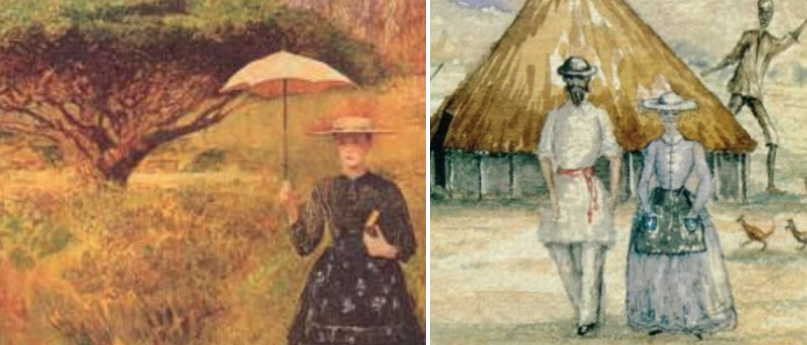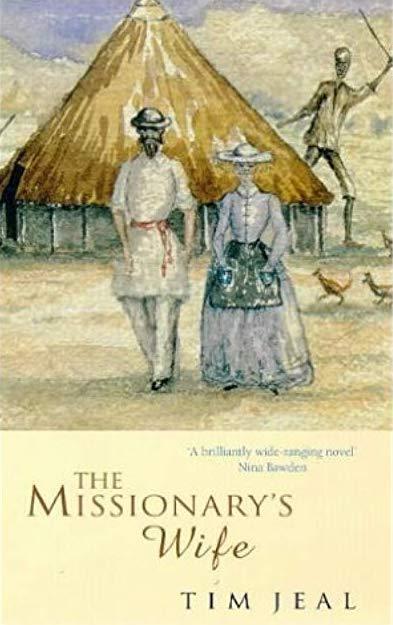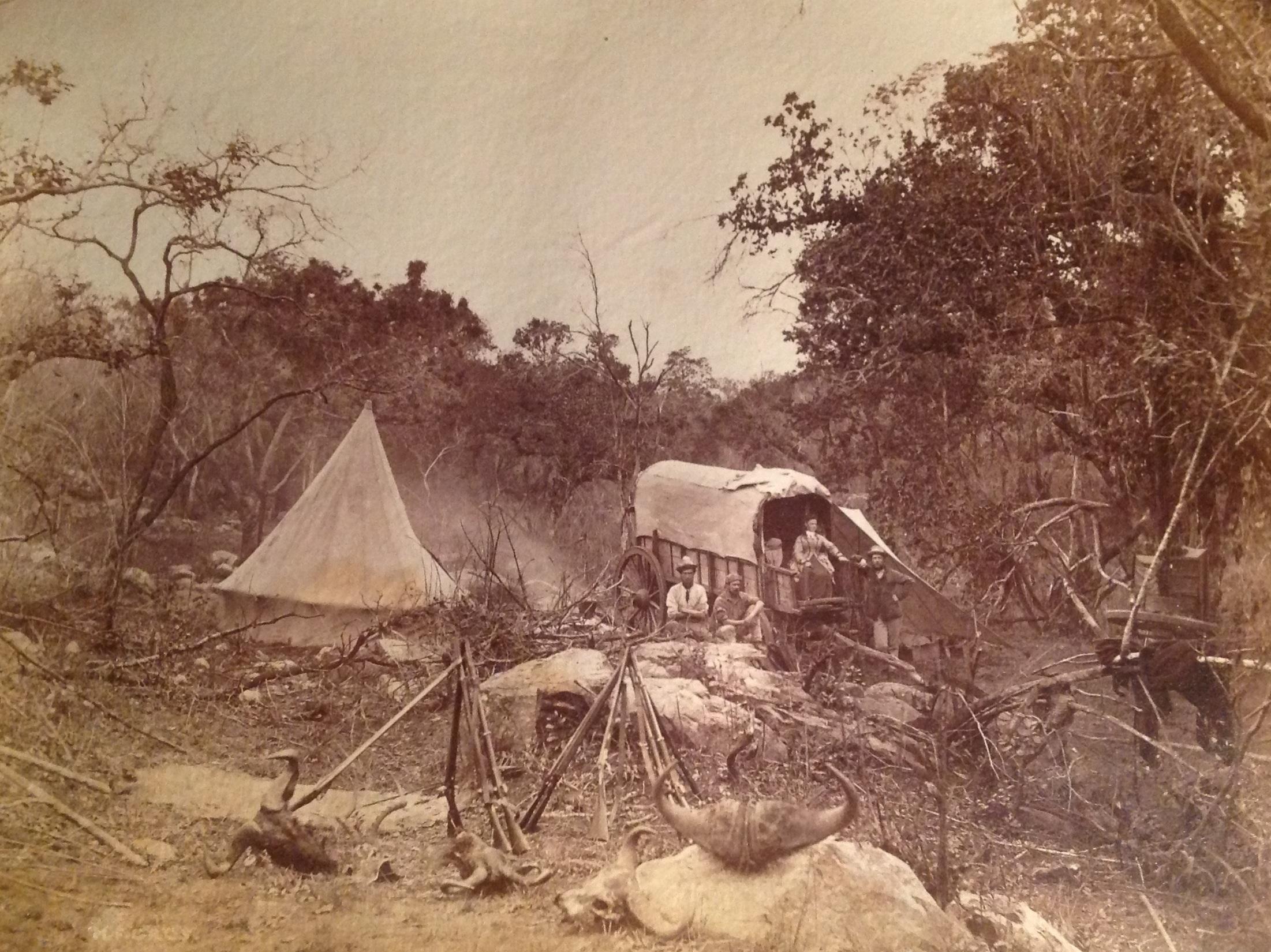
Early this year I visited my old high school. It was my first time of being there since I had left the school some nineteen years back. My visit coincided with school holidays, so I had the chance to peer through my former classrooms without disturbing any lessons in progress (for the benefit of context, the school is a Catholic private school situated in the leafy northern suburbs of Johannesburg).
Glancing through the large window into my former English classroom, I was confronted by a large, printed display stretching from the front corner of the classroom to the back. Printed on it in a large font was the word, ‘DECOLONIZATION’.
Decolonization is a term that we in South Africa have come to be very familiar with in recent times. In the midst of the Fees Must Fall student protests, the term was paraded as somewhat of an instruction manual - the next development in the progression of South African society.
Tim Jeal, the author of this novel, is somewhat of an expert in colonial biography. He has published an epic biography on David Livingstone, the Scottish Christian congregationalist, pioneer medical missionary of the London Missionary Society and explorer. The other sweeping biography he has written is one on Sir Henry Morton Stanley, the Welsh journalist and explorer who was famous for his exploration and rather amusing search for Livingstone in central Africa.
Book Cover
The Missionary's Wife was written and published in the mid-nineties, when colonial history on Africa was undergoing a revisionist process. The point was to give it a more balanced and authentic account, particularly about the stories as told by the subjects of colonialism. Writers of historical fiction on Africa were coming into a general consensus that the kind of narrative on colonialism as espoused by adventurist writers such as H Rider Haggard, was simply outdated and lacked authenticity to back it up. They agreed that a more genuine account of events was now necessary to align closer with what actually happened.
This story is set in the late 1800s. The missionary's wife is Clara Musson, the only child and daughter of a wealthy English Midlands pottery-maker and industrialist. Jilted by a local aristocrat, and still grieving her mother, she rediscovers her Christian faith through the Reverend Robert Haslam, a visiting missionary giving lectures while on leave in Britain. Much older in age, the widowed reverend`s charisma and brazen belief in his faith and purpose lure Clara in. In spite of her father`s objections at the possibility of losing his only child and heir to the "Dark Continent", Clara marries Robert before he leaves England for his remote mission station next to Belingwe village in Bulawayo, southern Rhodesia. He, however, will not take her along to his mission station until he has succeeded in converting the local chief, Mponda, into Christianity. He feels it will be better for her to come and live with him under these circumstances.
Clara is forced to sit back and wait patiently for the letter to arrive giving her the green light to travel to Africa and start a new life with her new husband. During the arduous and long journey, first by passenger ship and then by ox wagon, she meets an attractive young soldier, Captain Francis Vaughn, who is off on a hunting expedition with the big-game trophy hunter Heywood Flynn, an American. Clara finds the captain attractive, but she does not give in to her feelings and puts him out of her mind (until she begins her new journey as a married wife to the reverend Robert Haslam at the mission station). Her arrival at the mission reveals that things are not how her new husband purported them to be. Chief Mponda has not yet made the leap into becoming a Christian. He is taking his time because of rising tension between the Christian believers and the non-believing villagers, led by his son, Makufa. Along with the Chief’s son, the non-believers are led by the village medicine man, Nashu. Once he becomes a Christian, chief Mponda will have to put aside all three of his four wives and keep only the first. Nashu’s daughter, Makufa, is the second of the chief`s wives. It is not the chief`s desire, but the dictum of Christianity on the practice of polygamy. With this encroachment of "civilization" on tradition, and growing resentment against the invading white man, rebellion looms large in the horizon.
A hunting expedition in the late nineteenth century (HF Gros)
The descriptions about general life at the mission and in the village are intense and at times slow the narration by becoming too complex, and long-winded. Clara struggles to deal with Robert`s unflinching commitment while at the same time she bears witness to the disintegration of a way of life. Later, when captain Francis and Fynn return to flush out rebelling African militias, Clara finds her love for the captain reawakened, thus adding to a growing list of problems she has to confront. Equally, in his military role as a captain of a British Army legion (interestingly, based in the Natal colony), Francis Vaughn faces moral and ethical dilemmas which will affect his career in the military, and his whole future.
The Missionary`s Wife is one of a handful of historical fiction books about Africa that make the attempt to relate the story from a place as close to authentic as possible. Be that as it may, some aspects of the narration stand out as incorrect to the reality of the period. For instance, the village inhabitants of Belingwe are of Venda extraction, a likely fact given the close proximity of the current day South African/Zimbabwean border and the Venda people`s ancestral home straddling along that same border. Given this fact, it is rather curious how some of the villagers’ names are of a different origin. For example the Reverend Haslam’s houseboy is called Sibusiso, a Zulu name, and one of the mission station handmaids is called Lerato, which could be either a Sotho, Sepedi or Setswana name.
I would have loved to have seen a few notes from the author at the end detailing whether any of the principal characters were based on real life personalities (this is particularly in reference to the American trophy-hunter Heywood Fynn). For anyone who knows something about Rhodesian history, some events and scenes may seem familiar. For example, some elements of the storyline are similar to what happened during the Matabele Rebellion of 1896. The ending leaves open the possibility for a sequel, that things had not as yet reached their natural ending. It would have been interesting to see how Clara fared in later life. Did she resettle back into the prosaic dullness of English domestic life or did she live out her years reminiscing of Africa?
The Missionary’s Wife is a moving, gripping and a sterling probe into the moral dilemma that was colonialism. It is a powerful love story flashed out with vivid historical detail. Brilliantly plotted, the book evokes the sights and sounds of 1880s Africa. It is remarkably engaging and skillfully told. Ultimately, it is a book of deep moral intelligence.
Daluxolo Moloantoa is a freelance writer and journalist. After being awarded a scholarship by the Sowetan newspaper and Herdbuoys McCann-Erickson advertising agency he studied copywriting at the AAA School of Advertising in Johannesburg.
After a brief period working in the advertising industry, he went on an exchange programme to England and studied for a Community Media Certificate with the Community Volunteer Service Media Clubhouse in Suffolk. He became an arts journalist with Ipswich-based youth magazine IP1 and began covering South African arts-based news for London-based South African publication The South African as well as Cape Town charity magazine The Big Issue.
On his return to South Africa he became arts contributor to a number of local publications. In 2015 he won the Academic and Non-Fiction Association of South Africa (ANFASA) – Norwegian Foreign Fund Writers Award for his research project on missionary schools in South Africa.


